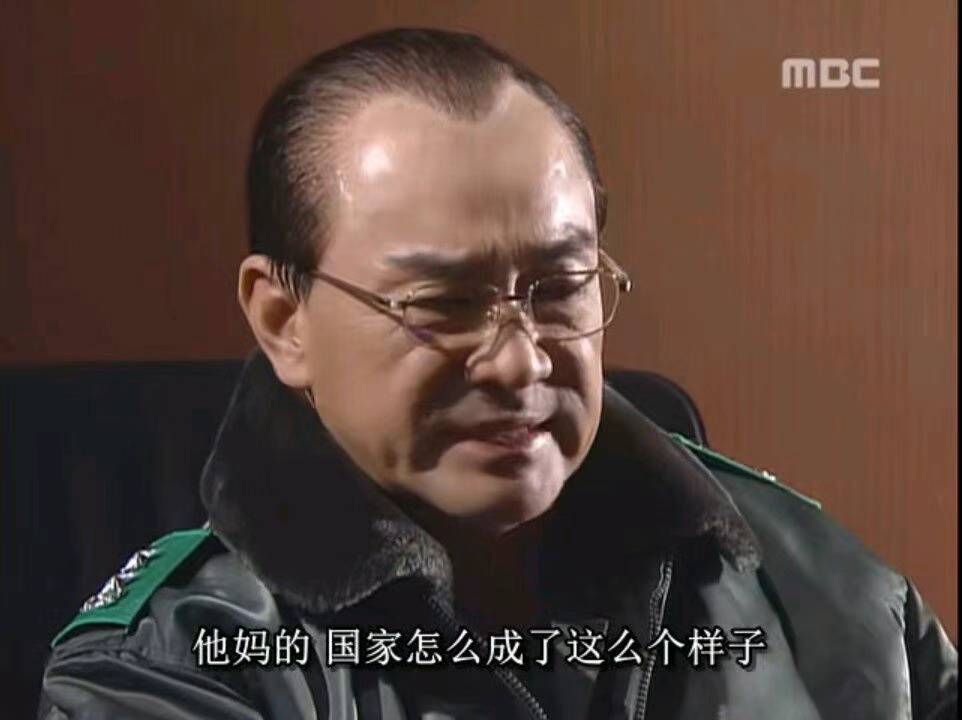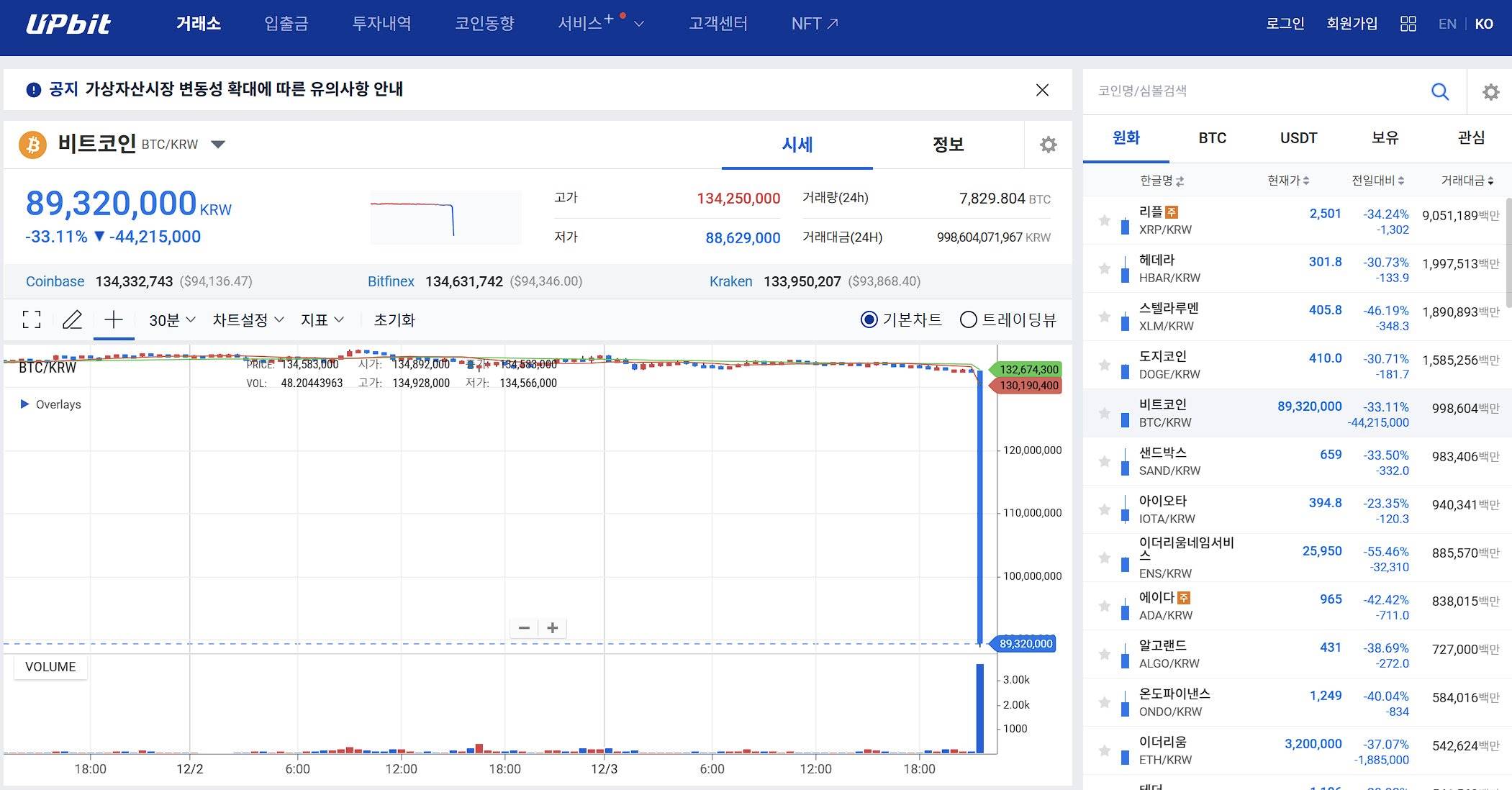In South Korea's political arena, the rivalry between Yoon Suk-yeol and Lee Jae-myung has become one of the most captivating political dramas in recent years.

On December 3, 2024, South Korean President Yoon Suk-yeol suddenly announced the implementation of "emergency martial law," a decision that not only shocked the South Korean political scene but also triggered a serious constitutional crisis.
As always, cryptocurrency investors were among the injured, with the price of Bitcoin on South Korea's largest trading platform, Upbit, briefly plummeting to $65,000.

So, the question arises: why did Yoon Suk-yeol announce sudden martial law?
The direct reason for Yoon Suk-yeol's declaration of martial law was to "maintain the free constitutional order," accusing the opposition party of "hijacking the National Assembly and disrupting the country," claiming to protect the Republic of Korea from the threat of North Korean communist forces and to eliminate pro-North anti-state elements.
Who is the enemy he speaks of?
That would be Yoon Suk-yeol's lifelong political rival—Lee Jae-myung.
In South Korea's political arena, the rivalry between Yoon Suk-yeol and Lee Jae-myung has become one of the most captivating political dramas in recent years. This feud, which began in the prosecution system, continued into the presidential election, and ultimately evolved into judicial accountability, is not only a personal contest between two political figures but also reflects the deep divisions within South Korean society.
In 2019, then-Prosecutor General Yoon Suk-yeol began a series of investigations into the ruling Democratic Party. At that time, Lee Jae-myung, who was serving as the governor of Gyeonggi Province, also became a target of the prosecution's attention. This rivalry reached its peak during the 2022 presidential election, where the two engaged in fierce confrontations, exposing each other's family corruption and spouse issues. Ultimately, Yoon Suk-yeol won by a narrow margin and took office at the Blue House.
Although Lee Jae-myung lost to Yoon Suk-yeol by a slim margin in the 2022 presidential election, his political influence has not diminished.
The dramatic turn of events in 2023 added more fuel to this feud. In March, Lee Jae-myung was indicted on multiple charges, including corruption in urban development, illegal remittances to North Korea, and perjury during the election period. By September, he was formally arrested, which immediately sparked strong protests from his supporters.
Supporters of Lee Jae-myung believe this is a blatant political retaliation by the Yoon Suk-yeol government. Meanwhile, the ruling party insists that they are acting according to the law, emphasizing the independence and necessity of judicial procedures. This controversy quickly escalated into a nationwide political crisis, sparking waves of protests on the streets of Seoul.
Why does Lee Jae-myung, despite facing multiple lawsuits, still garner significant public support?
It is essential to mention Lee Jae-myung's life story, as his rise can be likened to the "American Dream" in South Korea.
Coming from a poor background, his father was an ordinary miner, and the family was not wealthy. More notably, he did not possess the prestigious educational background typical of most South Korean political elites; instead, he successfully self-studied to obtain a lawyer's qualification and made a name for himself in the field of human rights.
Before entering national politics, Lee Jae-myung demonstrated exceptional governance capabilities while working in local government. During his tenures as the mayor of Seongnam and the governor of Gyeonggi Province, he implemented a series of welfare policies, establishing a solid reputation for his achievements.
In terms of communication, Lee Jae-myung effectively combines his political views with social hot topics through platforms like Twitter, YouTube, and Instagram, using straightforward and relatable language. This communication style is particularly popular among young voters, helping him break through the stereotypical image of traditional politicians.
At this point, you might think of someone else—someone similarly embroiled in legal troubles yet beloved by the public. That's right, it's Trump. Many people compare Lee Jae-myung to South Korea's Trump; as the leader of the largest opposition party, the Democratic Party, Lee Jae-myung, who is burdened with five criminal cases, is still seen as a strong contender for the South Korean presidency in 2027.
Recently, a South Korean media outlet published an opinion piece titled "Can Lee Jae-myung Become Trump?" suggesting that the election of Trump as president in the U.S. could offer some comfort to Lee Jae-myung, as the former faced multiple criminal cases yet still won. The article pointed out that in modern elections, American voters seem to increasingly disregard values such as morality and justice, a trend that is also evident in South Korea.
On November 25, Lee Jae-myung was acquitted in the "incitement to perjury" case at the Seoul Central District Court.
On the weekend before the verdict, on November 23, supporters of the "progressive" and "conservative" camps staged opposing rallies near Gwanghwamun in Seoul. The "progressive" rally demanded "President Yoon Suk-yeol's resignation," while the "conservative" rally called for "the arrest of Lee Jae-myung," with both camps gathering less than a kilometer apart, totaling over ten thousand participants.
Meanwhile, President Yoon Suk-yeol's approval rating plummeted to just 17%, marking a historic low.
Although the South Korean government has long been questioned due to corruption rumors, it is extremely rare for approval ratings to fall below 20%. This indicates that the president has almost lost effective control over the government.
In contrast, after being indicted and arrested, Lee Jae-myung not only did not lose public support but actually gained more sympathy and backing due to the narrative of "political persecution."
South Korean crypto investor @Yusoff Kim believes that while the official statement cited "national security" as the main reason, many people think this move is more about consolidating the president's power during the current crisis.
Regarding Yoon Suk-yeol's announcement of martial law, Lee Jae-myung stated that President Yoon Suk-yeol's illegal declaration of martial law is invalid, and from now on, Yoon Suk-yeol is no longer the president of the Republic of Korea. He also called on the South Korean public to go to the National Assembly to protect it.
The impact of this political contest extends far beyond personal grievances. It deepens the divide between South Korea's conservative and progressive factions and exposes many controversial issues within the country's democratic system. The conservative People Power Party, represented by Yoon Suk-yeol, and the progressive Democratic Party, led by Lee Jae-myung, have fundamental differences in political ideology and national development paths.
Is South Korean society currently trapped in a deeper division due to this ongoing political dispute? The judicial process of the Lee Jae-myung case is still ongoing, but its political impact has already transcended the courtroom, becoming a litmus test for South Korea's political civilization and social stability.
免责声明:本文章仅代表作者个人观点,不代表本平台的立场和观点。本文章仅供信息分享,不构成对任何人的任何投资建议。用户与作者之间的任何争议,与本平台无关。如网页中刊载的文章或图片涉及侵权,请提供相关的权利证明和身份证明发送邮件到support@aicoin.com,本平台相关工作人员将会进行核查。



